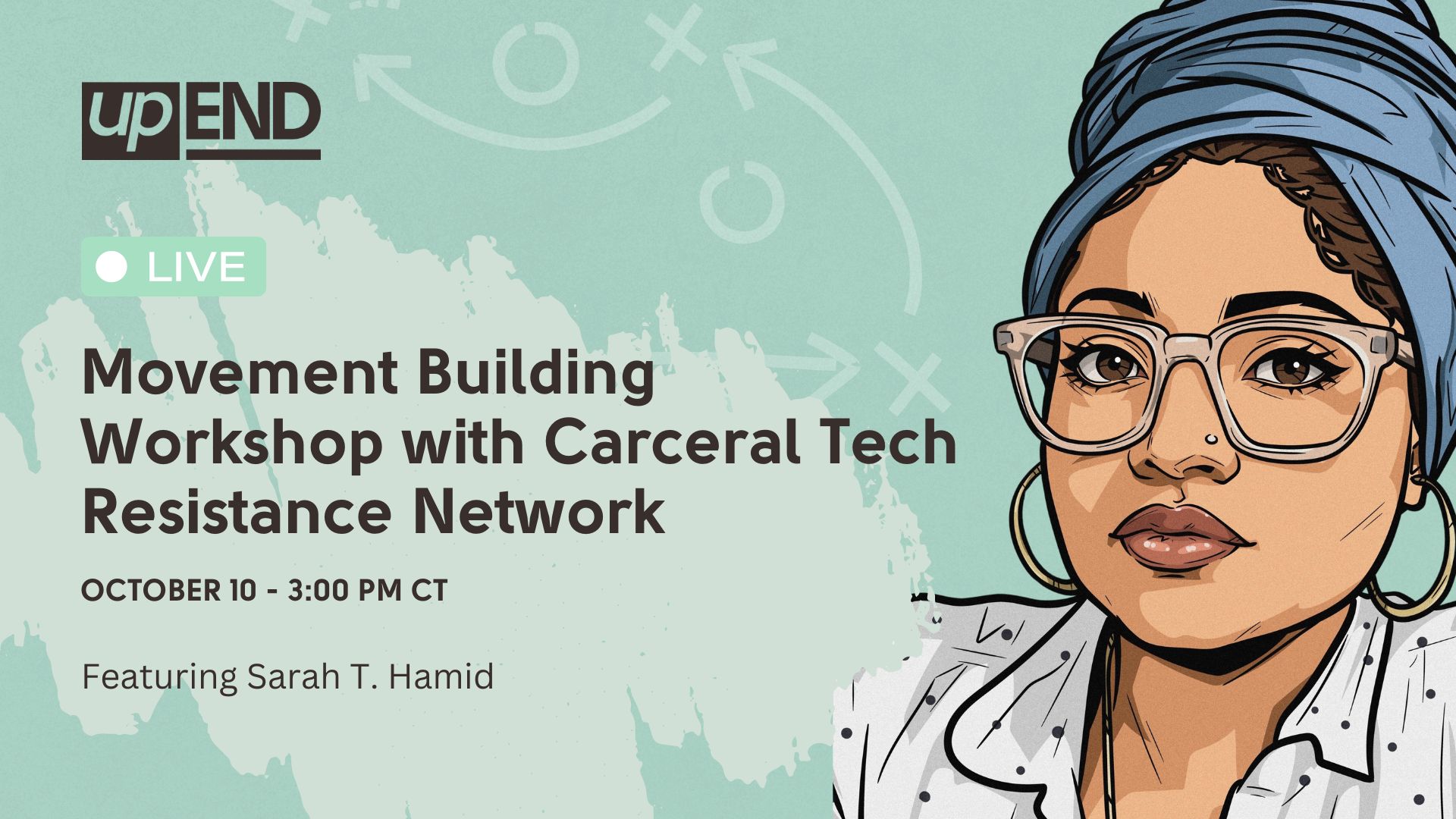Movement Building Workshop with Carceral Tech Resistance Network
October 10, 2024
October 10, 2024

3:00 – 4:00 PM CT
Ballroom 210, Student Center South
The politics of solidarity can often feel elusive, caught between the thin feeling of principled resolve and the complex realities of cross-sector coordinations that are often difficult to sustain. This workshop takes that tension head on: cross-sector solidarity for family policing abolitionists doesn’t need to be abstract or transactional. Instead, solidarity can serve as a practical framework to understand the violence of carceral child welfare and the way it articulates today.
Carceral child welfare systems do not disproportionately target Black, indigenous, and immigrant communities because of a shared or inherent vulnerability: they do so because eugenics and population control have deep roots in US imperial violence. This workshop will offer a model of how we can leverage our shared experience of surveillance, regulation, and elimination to build effective and responsive strategies toward abolition.
Sarah T. Hamid (@tsnvaa) is a Muslim, immigrant, and abolitionist working at the intersection of technology, global/domestic warfare, and punishment-based criminal and bordering systems. Sarah co-founded and helps advise the Carceral Tech Resistance Network, an archiving and knowledge-sharing network for organizers building community defense against the design, roll-out, and experimentation of carceral technologies; sits on the board of Lucy Parsons Lab (Chicago); and serves on the coordinating team for the inside/outside research collaboration, the Prison Tech Research Group.